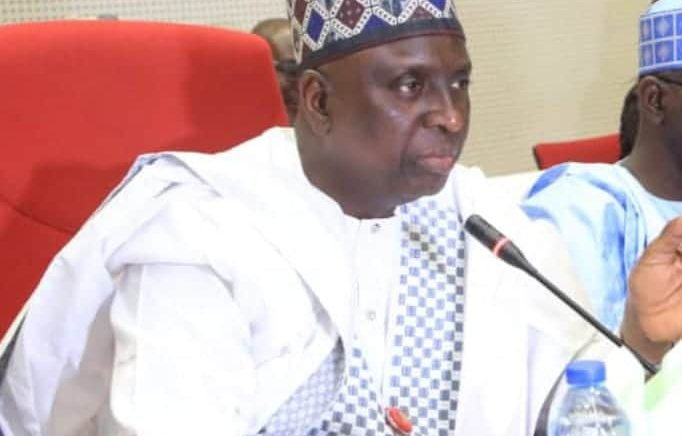
The Chairman of the National Health Insurance Authority (NHIA), Senator Ibrahim Yahaya Oloriegbe, has called on the Federal Government to allocate a minimum of N4 billion for mental health care in the 2026 national budget, warning that the sector remains dangerously underfunded despite its central role in overall health and national stability.
Oloriegbe made the appeal in Ibadan on Thursday while delivering the keynote address at the Mental Health Leadership and Advocacy Workshop, which drew participants from 19 African countries under the coordination of the Africa Centre for Disease Control (Africa CDC).
He noted that while Nigeria continues to dedicate almost 80 per cent of health spending to physical health, mental health services are left behind, even though research consistently shows strong links between mental wellbeing, productivity, and physical health outcomes.
“There is no health without mental health,” he stressed. “Many physical illnesses are triggered by underlying mental conditions, and untreated mental health challenges often manifest as physical diseases. Ignoring this connection is costing lives and weakening our society.”
The former lawmaker, who championed the Mental Health Act 2023 during his tenure in the 9th Senate, expressed concern that the legislation—passed to replace the outdated Lunacy Act of 1958—has yet to be fully implemented.
He urged the Federal Ministry of Health to immediately establish a dedicated Mental Health Department to give practical effect to the law and ensure that vulnerable groups can access services.
“To give life to the Act, I am calling for the urgent establishment of a Mental Health Department within the Federal Ministry of Health,” he said.
“I also advocated for the creation and proper funding of a Mental Health Fund, with a minimum of N4 billion to be allocated in the 2026 budget. These steps will make services more accessible and help tackle the rising cases of substance abuse and suicide, particularly among young Nigerians.”
Oloriegbe insisted that mental health must be viewed not just as a health concern, but also as a driver of economic growth, productivity, and national security.
“When citizens are mentally unwell, their ability to contribute positively to society is impaired. The ripple effects are felt across every sector—from the workplace to education and even governance. Addressing mental health means addressing the foundations of stability and progress,” he said.
He praised the Africa CDC, University College Hospital (UCH) Ibadan, and other partners for advancing leadership training and advocacy in mental health, which he said align with his vision of wider awareness and structured service delivery.
“The time to act is now,” he declared, pledging continued collaboration with local and international stakeholders to ensure mental health receives the policy attention and budgetary support it requires.
Available data paints a grim picture of Nigeria’s mental health burden:
One in four Nigerians—about 50 million people—live with a mental health condition.
Less than 10 per cent of those affected have access to any form of treatment.
The country has fewer than 300 psychiatrists serving a population of over 220 million.
According to the World Health Organisation (WHO), Nigeria has just 0.09 psychiatrists and 0.07 psychologists per 100,000 people, far below international recommendations.
Stigma remains a major barrier, with many Nigerians still associating mental illness with spiritual causes or witchcraft, often pushing sufferers toward religious or traditional healers instead of professional care.
Despite the enactment of the Mental Health Act in January 2023, less than three per cent of the total health budget goes to mental health services, while overall health spending still falls short of the 15 per cent allocation benchmark set by the African Union.
Stakeholders at the Ibadan workshop agreed that without urgent political will and financial commitment, the gap between Nigeria’s mental health needs and available services will continue to widen.